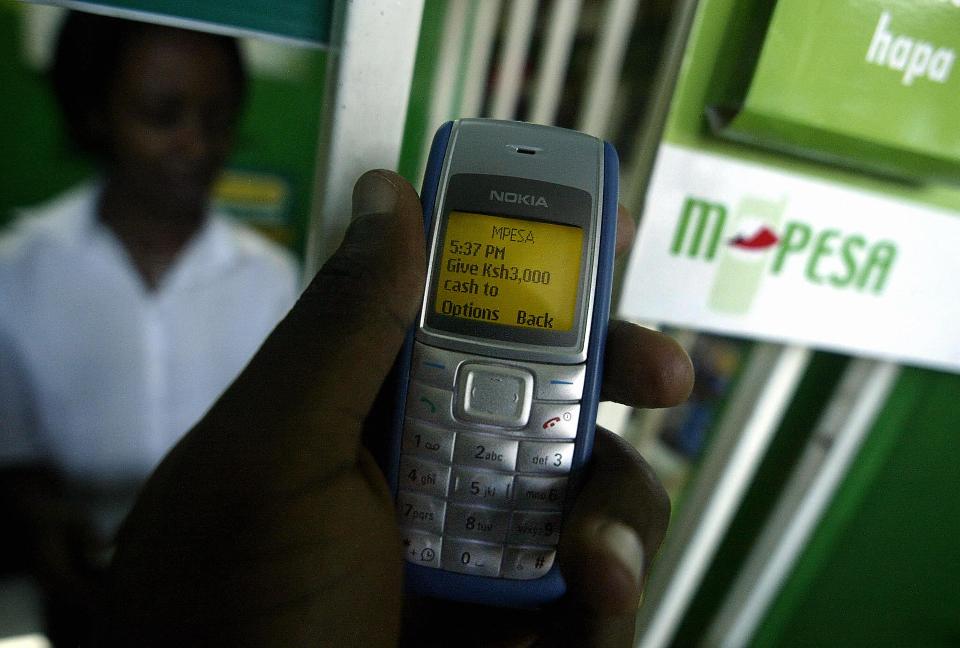Payments and remittances startups account for the majority of Africa’s over 300 fintech startups, though blockchain companies are the more likely to secure funding.
This is according to the Finnovating for Africa: Exploring the African Fintech Ecosystem Report 2017 released by Disrupt Africa, which analyses a data set of 301 African fintech startups – which has also been made available to investors.
The report finds there has been a boom in the fintech space over the last two years, with more than half of the fintech startups currently operating launching after January 2015. These companies are disrupting the financial services landscape with innovative solutions that are attracting the attention of banks and investors.

Nairobi, KENYA: Photo taken 23 April 2007 shows a man sending money through a pioneering mobile
Payments and remittances is the most populated of nine sub-sectors addressed in the report, with 125 startups across the continent focused on making the process of sending and receiving money easier. Lending and financing – with 65 startups – is the next most popular category; indeed, over 60 per cent of all Africa’s fintech startups are focused on these two crucial spaces.
Seven other categories are analysed in the report, which also looks into the funding and acquisitions of African fintech startups over the last few years. Though payments and remittances and lending and financing startups secured the most funding in total, African blockchain startups are the most successful in percentage terms, with almost 40 per cent of the blockchain-focused startups on the continent securing funding.
The continent’s fintech startups have secured over US$92.5 million in investment since 2015, the report finds, while the data shows fintech startups are spread across the African continent. Southern Africa and West Africa are fintech leaders – with 34.2 per cent and 34 per cent respectively based in those regions respectively. South Africa has the most fintech startups (94), followed by Nigeria (74) and Kenya (56).
“The sad fact is many of Africa’s citizens still lack access to basic financial services, with traditional financial service providers being unable to reach the most needy on the continent. The heavy work to connect these unbanked populations is being done by the continent’s fintech innovators, meaning the space is of crucial importance and impact,” said Gabriella Mulligan, co-founder of Disrupt Africa.
Tom Jackson, co-founder of Disrupt Africa, said the importance of the fintech sector was evidenced by the increasing activity within it of investors, accelerator programmes, and banks.
“Fintech is clearly one of the most vibrant spaces within the African tech scene, and the investor community is alive to that. In addition, we have seen a host of independent and bank-led programmes and initiatives launched to support the development of fintech on the continent, which this report also tracks,” he said.




























